This video can not be played
To play this video you need to enable JavaScript in your browser.
Russia has begun a large-scale military attack on Ukraine, its southern neighbour, on the orders of Russian President Vladimir Putin.
There are reports of attacks on Ukrainian military infrastructure across the country, and Russian convoys entering from all directions.
Here is what we know so far.
Putin orders attack
In a televised speech at 05:55 Moscow time (02:55 GMT), Mr Putin announced a "military operation" in Ukraine's eastern Donbas region. This area is home to many Russian-speaking Ukrainians. Parts of it has been occupied and run by Russian-backed rebels since 2014.
Mr Putin said Russia was intervening as an act of self-defence. Russia did not want to occupy Ukraine, he said, but would demilitarise and "de-Nazify" the country.
He urged Ukrainian soldiers in the combat zone to lay down their weapons and go home, but said clashes were inevitable and "only a question of time".
And he added that any intervention from outside powers to resist the Russian attack would be met with an "instant" and devastating response.
Explosions heard across the country
BBC correspondents heard loud bangs in the capital Kyiv, as well as Kramatorsk in the Donetsk region of eastern Ukraine. Blasts have also been heard in the southern port city of Odesa.
Ukraine's President Volodymyr Zelensky said Russia had carried out missile strikes on Ukraine's infrastructure and on border guards.
Russia's defence ministry has denied attacking Ukrainian cities - saying it was targeting military infrastructure, air defence and air forces with "high-precision weapons".
Tanks and troops enter Ukraine
Tanks and troops have poured into Ukraine at points along its eastern, southern and northern borders, Ukraine says.
Russian military convoys have crossed from Belarus into Ukraine's northern Chernihiv region, and from Russia into the Sumy region, which is also in the north, Ukraine's border guard service (DPSU) said.
Belarus is a long-time ally of Russia. Analysts describe the small country as Russia's "client state".
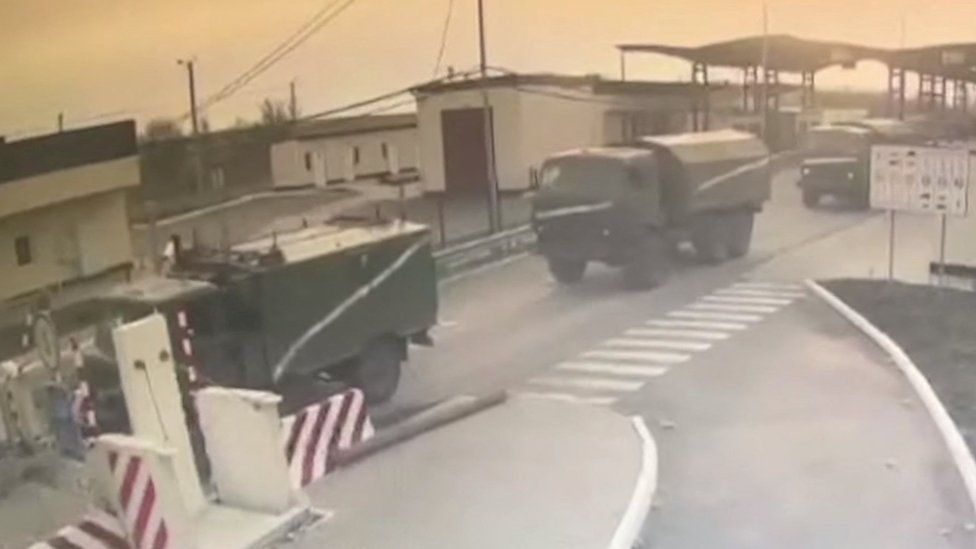
Convoys have also entered the eastern Luhansk and Kharkiv regions, and moved into the Kherson region from Crimea - a territory that Russia annexed from Ukraine in 2014.
The Russian offensive was preceded by artillery fire and there were injuries to border guards, the DPSU said.
There have also been reports of troops landing by sea at the Black Sea port cities of Mariupol and Odesa in the south. A British resident of Odesa told the BBC many people were leaving.
Deaths reported
About 10 civilians are believed to have been killed, including six in an air strike in Brovary near the capital Kyiv. A man was also killed in shelling outside the major eastern city of Kharkiv.
A Ukrainian presidential adviser said that more than 40 soldiers had died and dozens more were wounded. Ukraine said it had killed 50 Russian troops.
- LIVE: Follow latest developments
- THE BASICS: What does Putin want?
- EXPLAINER: What sanctions are being imposed on Russia?
Ukraine is fighting back
The Ukrainian armed forces said they had shot down five Russian planes and a helicopter - which Russia denies - and inflicted casualties on invading troops.
But later on Thursday President Zelensky said Ukraine had suffered losses and a lot of aircraft and armoured vehicles had been destroyed.
Russia said it has destroyed more than 70 military targets in Ukraine.
Much of the fighting appears to be centred around the east of the country. But clashes have also been taking place around Kyiv and the Black Sea port cities of Odesa and Mariupol.
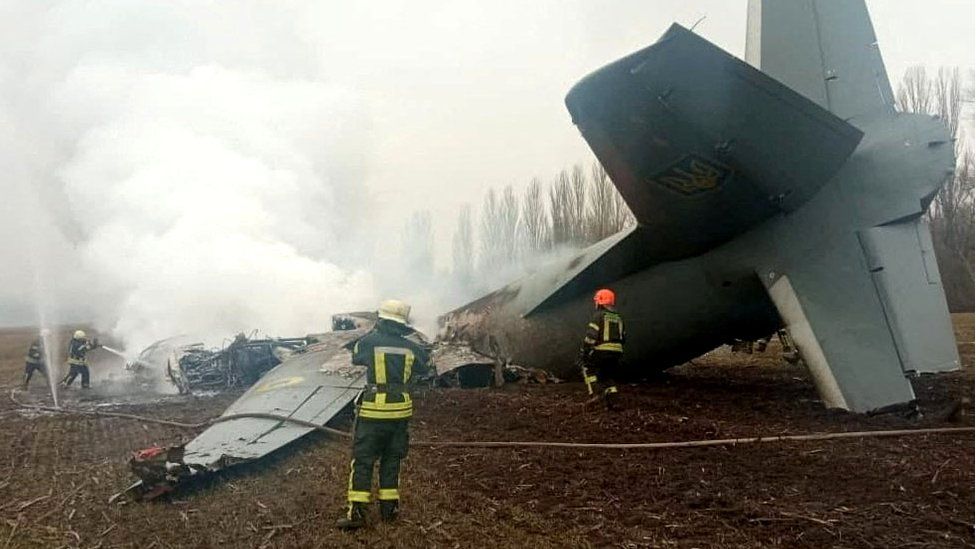
Ukraine has declared martial law - which means the military takes control temporarily. It has cut diplomatic ties with Russia, offered weapons to anyone who wants them and declared an overnight curfew for Kyiv.
Meanwhile Foreign Minister Dmytro Kuleba implored the world to impose devastating sanctions, including banning Russia from the international Swift bank transfer system
Residents seek shelter
In Kyiv there are huge jams on expressways as people flee the city.
Social media testimonies speak to a growing sense of panic, with some saying they are being rushed into bomb shelters and into basements. Television footage has showed people praying in the streets.
Many people in Kyiv have sought shelter in underground metro stations. There were long queues at petrol stations and cash machines.
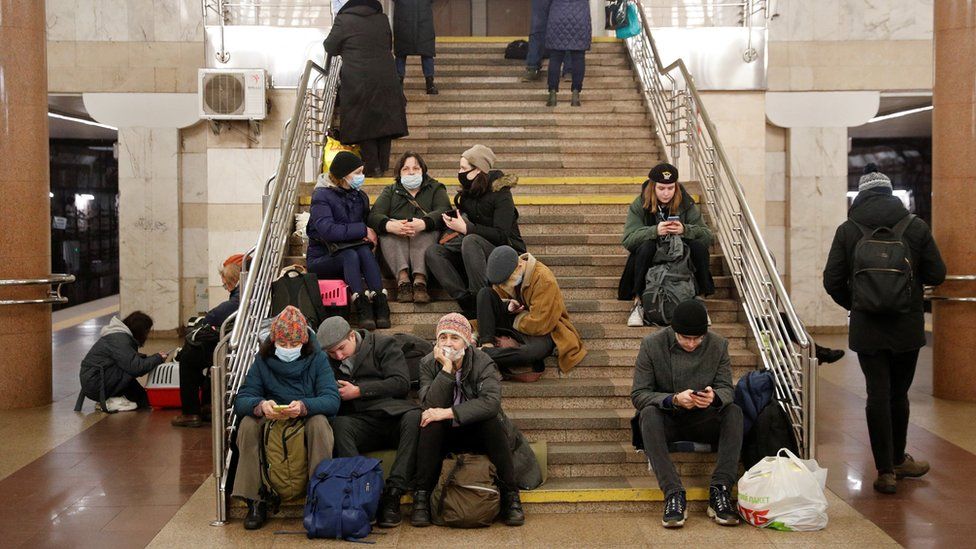
Further east in Kramatorsk, in the eastern Donetsk region, the BBC's Eastern European Correspondent Sarah Rainsford said people did not expect such a full-on assault.
"People were out on the streets last night in this city - they were waving the Ukrainian flag. They said this was their land. They were going nowhere," she reported.
"This is what people have been expecting, they have been waiting for, but no-one here can quite believe it's actually happening."
Oil price jumps
Oil prices surged above $100 for the first time in more than seven years.
Meanwhile Russia's currency, the rouble, fell to an all-time low against the dollar and the euro.
And the London Stock Exchange's leading FTSE 100 index plunged more than 200 points, or 2.7%, within moments of opening.
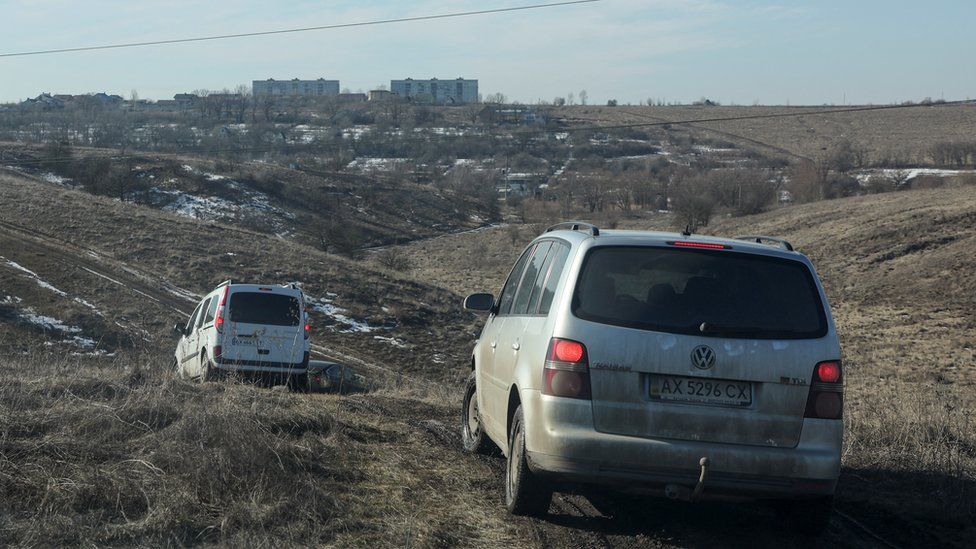
World condemns Putin
US President Joe Biden said Mr Putin had "chosen a premeditated war that will bring a catastrophic loss of life and human suffering".
He said he would address Americans on Thursday about consequences Russia would face.
UKPrime Minister Boris Johnson said that the "hideous and barbaric venture by Vladimir Putin must end in failure".
Addressing Russians, he said: "I cannot believe this is being done in your name, or that you really want the pariah status it will bring to the Putin regime." He told Ukrainians that the UK was "on your side".
Nato Secretary-General Jens Stoltenberg condemned Russia's "reckless attack" saying it "puts at risk countless civilian lives".
Europe was "facing its darkest hours since World War Two", EU foreign policy chief Josep Borrell said.
However former US President Donald Trump says Mr Putin took advantage of American "weakness".
He called Fox News to say that he didn't believe that Putin "wanted to do this, initially".
"I think he wanted to do something and negotiate, and it got worse and worse, and then he saw the weakness," Trump said.

Are you in Ukraine? Are you or your family affected? Email haveyoursay@bbc.co.uk.
Please include a contact number if you are willing to speak to a BBC journalist. You can also get in touch in the following ways:
- WhatsApp: +44 7756 165803
- Tweet: @BBC_HaveYourSay
- Upload pictures or video
- Please read our terms & conditions and privacy policy
If you are reading this page and can't see the form you will need to visit the mobile version of the BBC website to submit your question or comment or you can email us at HaveYourSay@bbc.co.uk.
-
-
- 10 hours ago
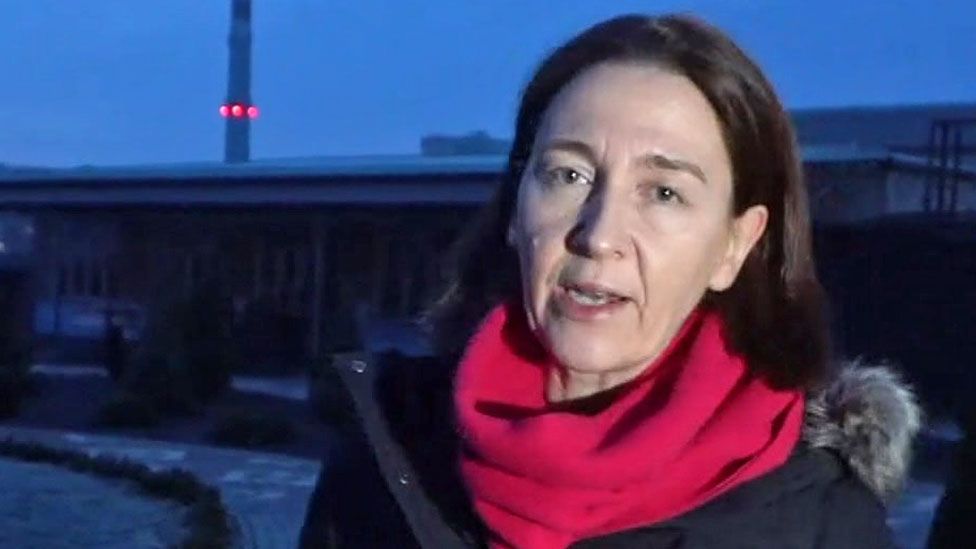
-
-
-
- 2 hours ago
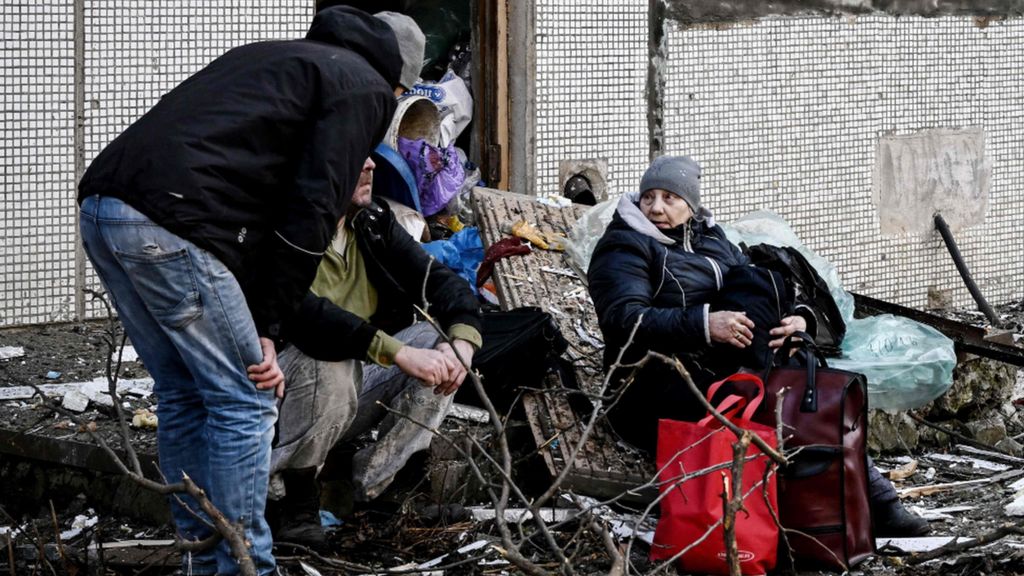
-
-
-
- 25 minutes ago
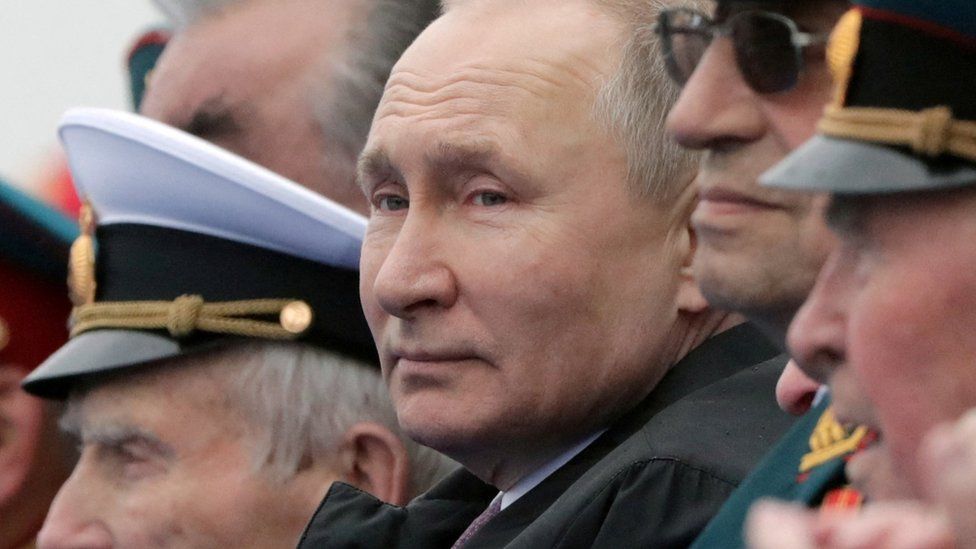
-
-
-
- 16 hours ago
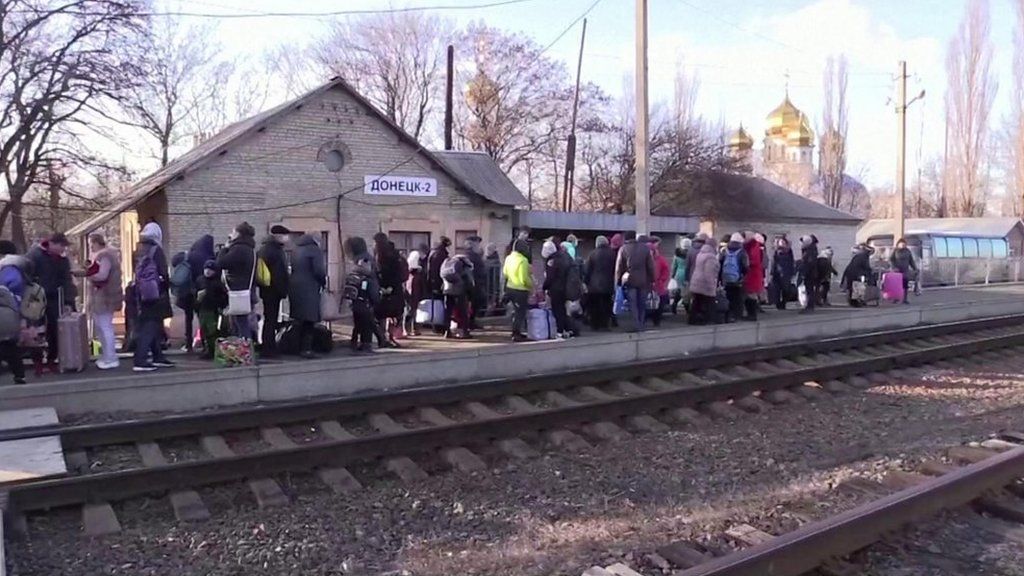
-
"about" - Google News
February 24, 2022 at 10:54PM
https://ift.tt/4N2Lo35
Ukraine conflict: What we know about the invasion - BBC News
"about" - Google News
https://ift.tt/lO8oXzc
Bagikan Berita Ini
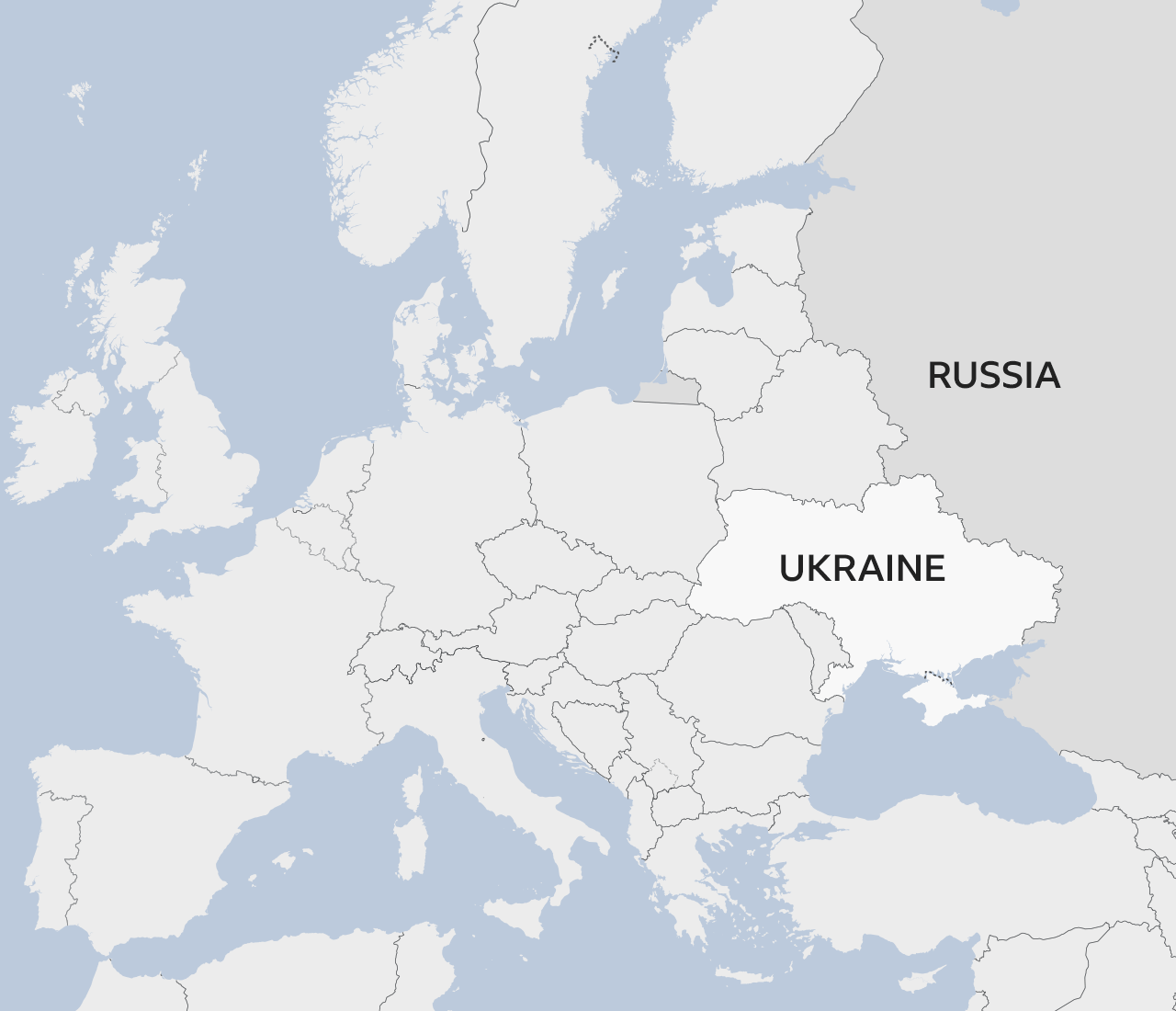
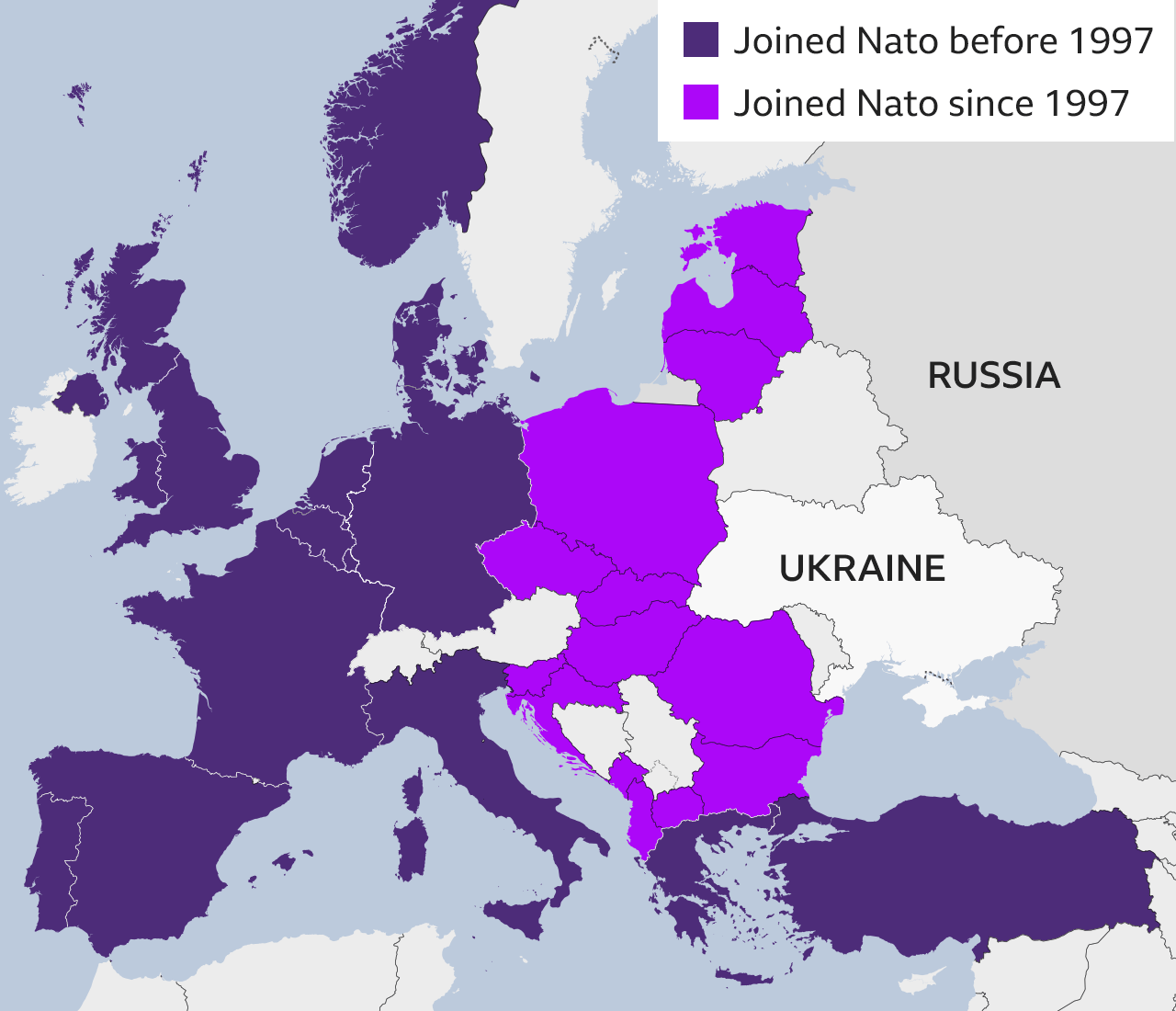
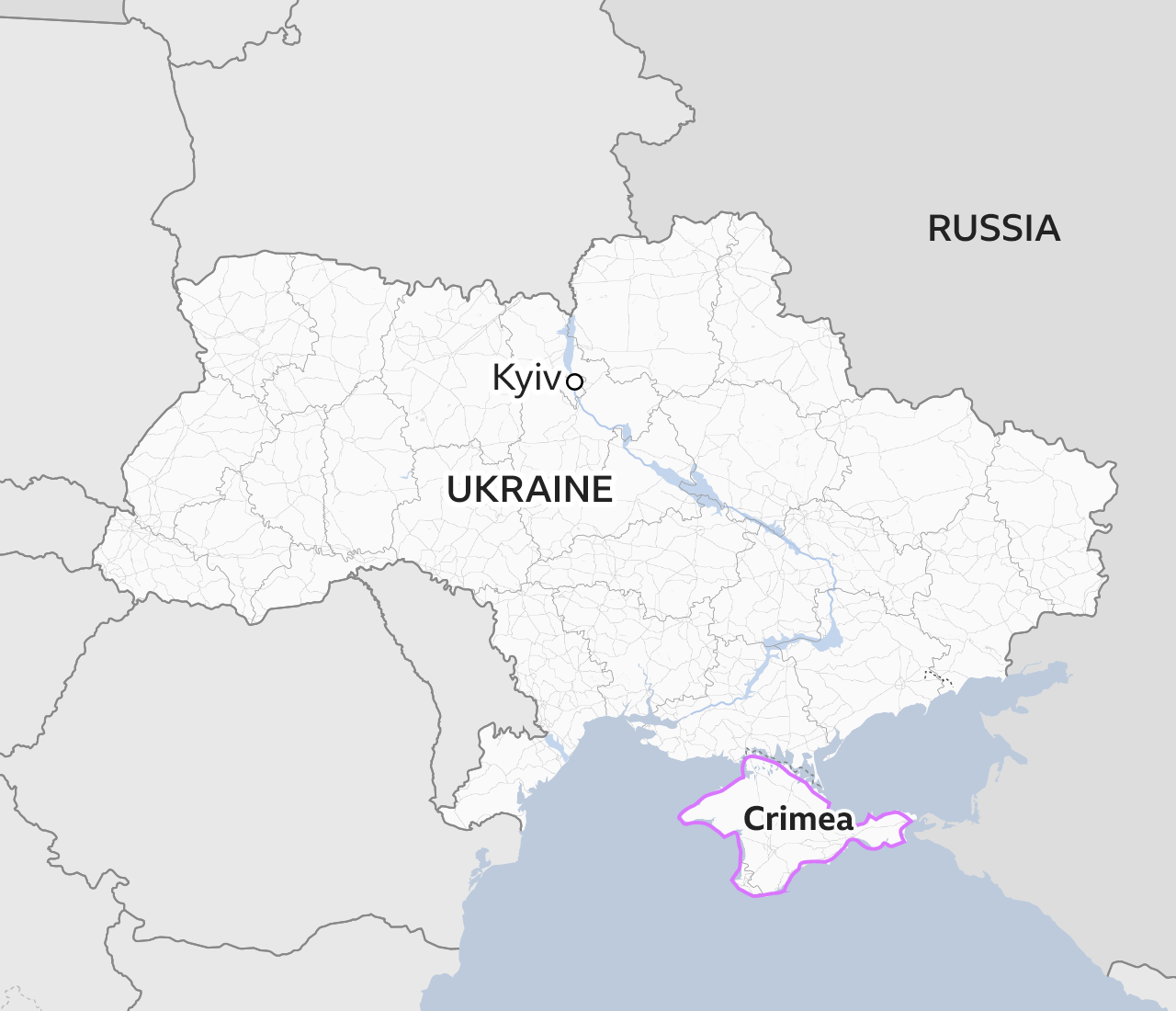
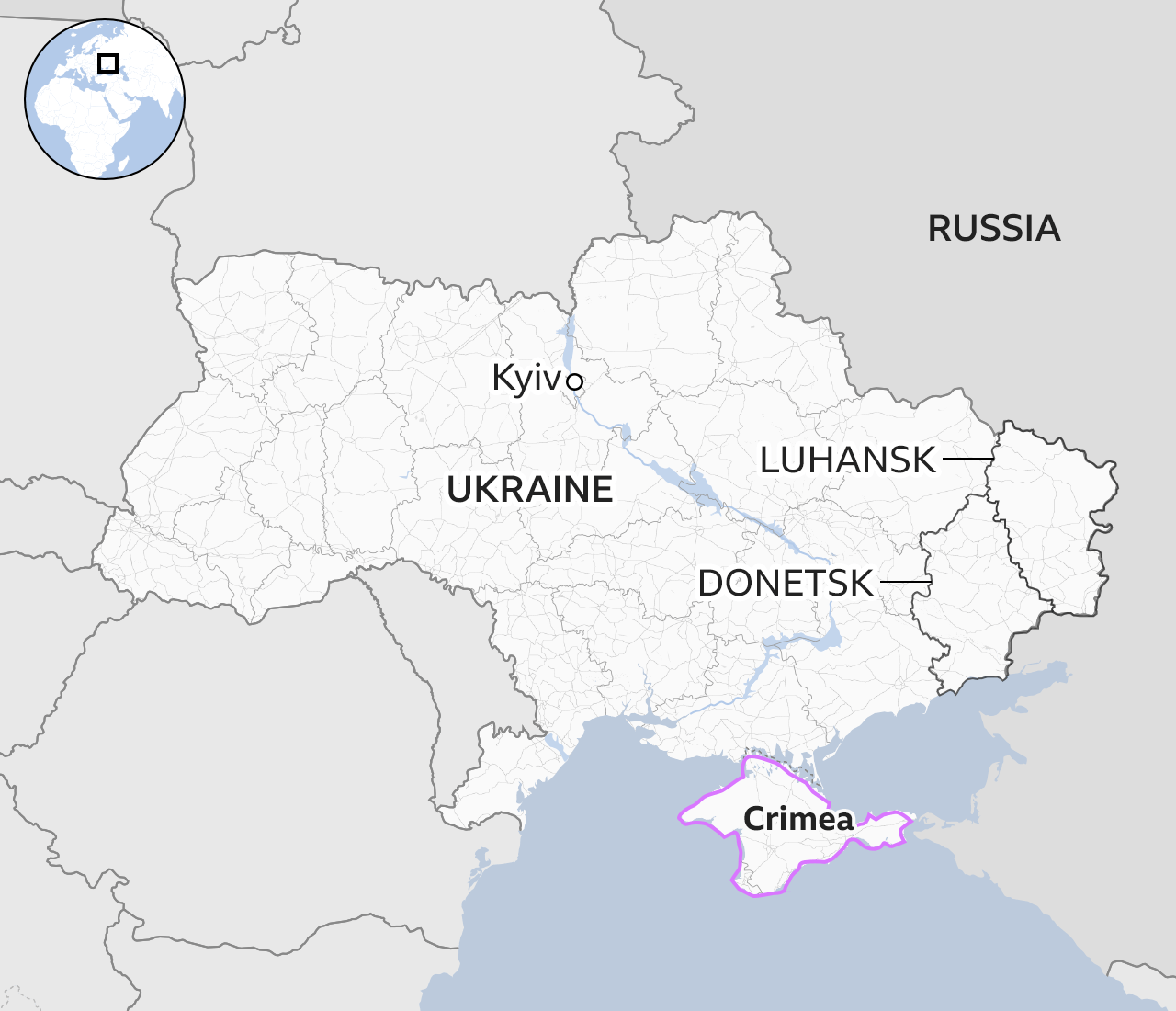
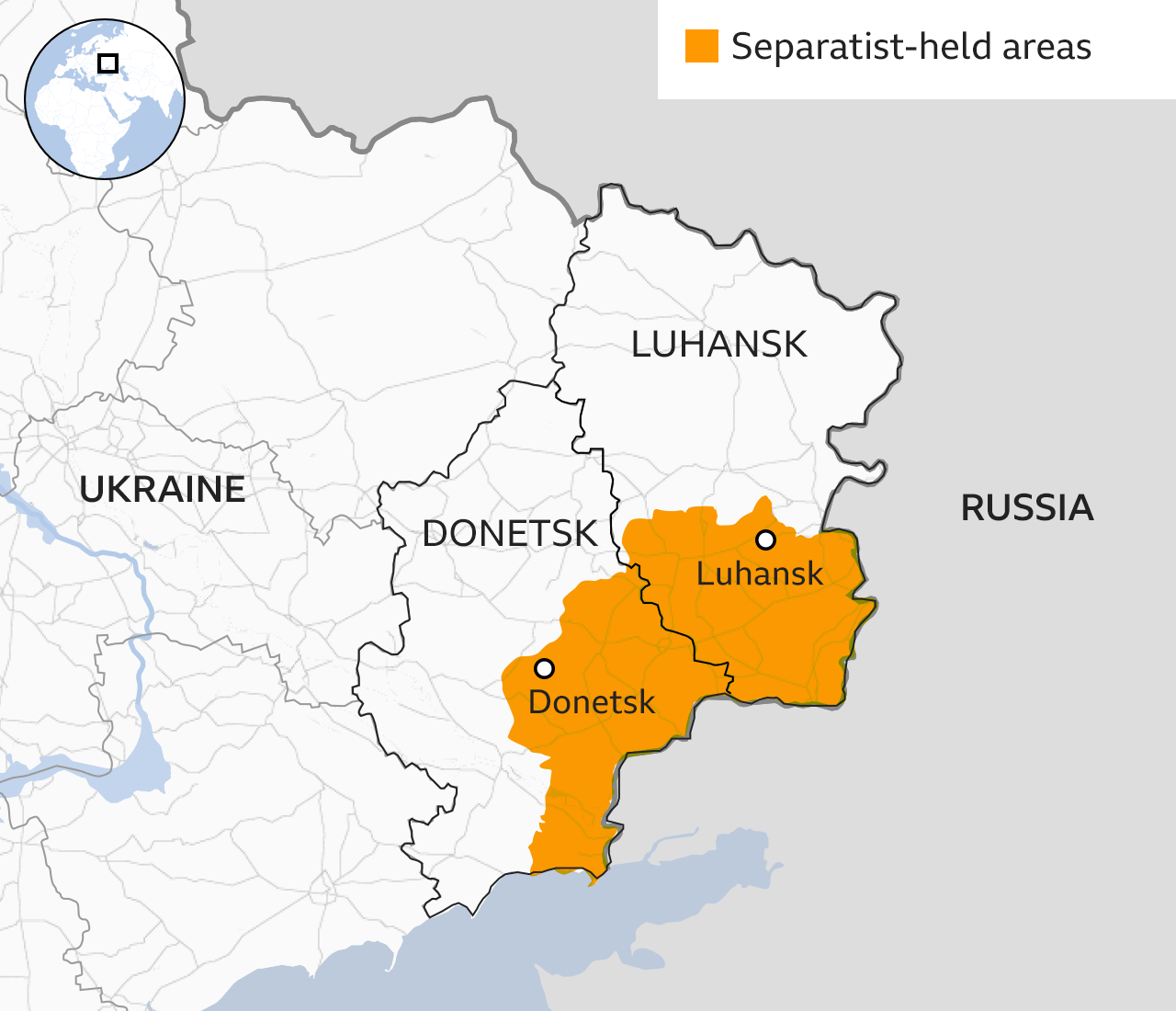














0 Response to "Ukraine conflict: What we know about the invasion - BBC News"
Post a Comment